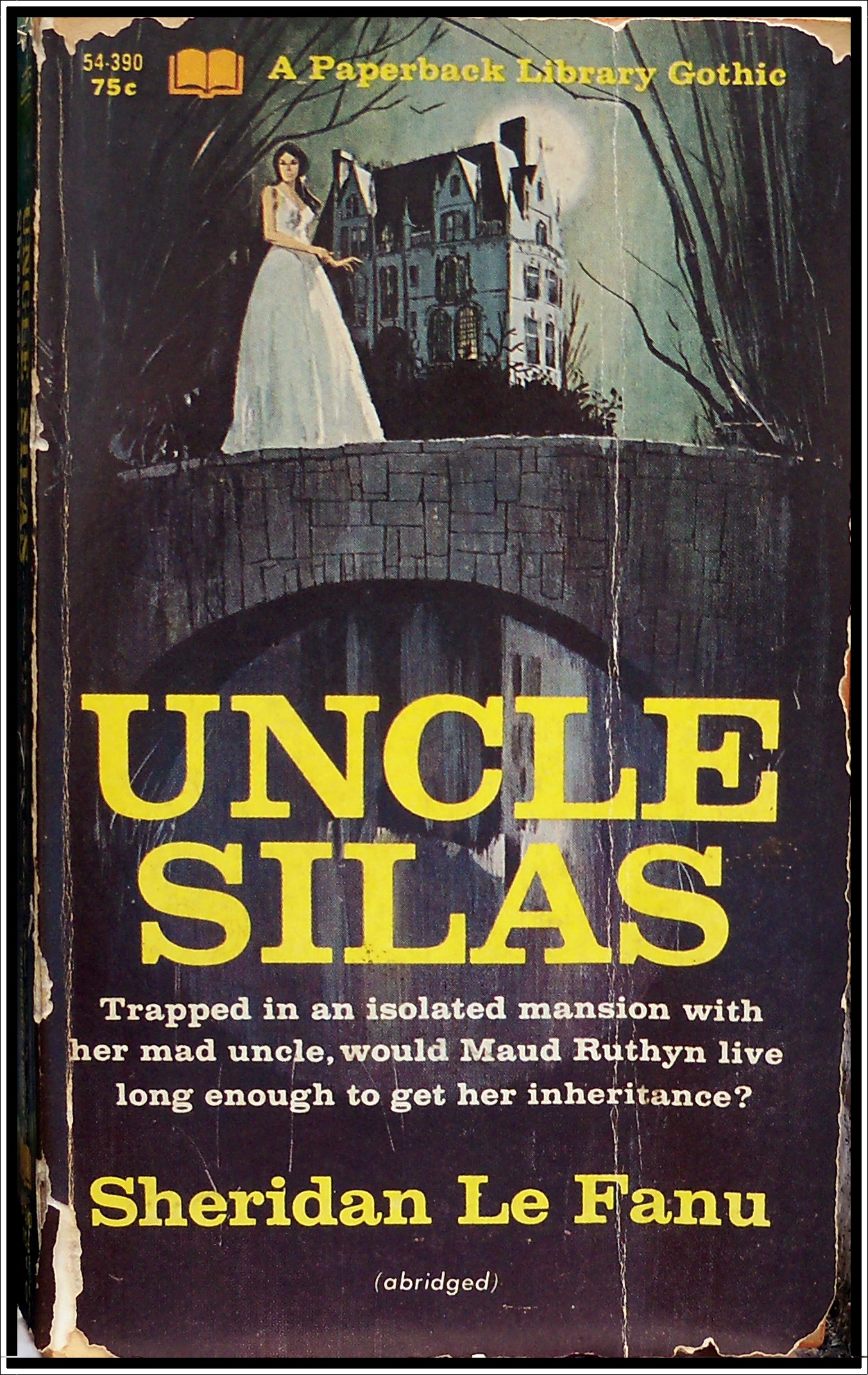'I don't understand metaphysics, my dear, nor witchcraft. I sometimes believe in the supernatural, and sometimes I don't. Silas Ruthyn is himself alone, and I can't define him, because I don't understand him. Perhaps other souls than human are sometimes born into the world, and clothed in flesh. It is not only about that dreadful occurrence, but nearly always throughout his life; early and late he has puzzled me. I have tried in vain to understand him. But at one time of his life I am sure he was awfully wicked--eccentric indeed in his wickedness--gay, frivolous, secret, and dangerous. At one time I think he could have made poor Austin do almost anything; but his influence vanished with his marriage, never to return again. No; I don't understand him. He always bewildered me, like a shifting face, sometimes smiling, but always sinister, in an unpleasant dream.'
The title character of Sheridan Le Fanu's Uncle Silas doesn't appear in the novel for more than 200 pages, but he's always a presence, casting a shadow. The protagonist, plucky young Maud Ruthyn, obsesses over his portrait--she's never met her uncle--and imagines him as mysterious and debonair. Silas' brother, Austin, confesses to his daughter Maud that Silas was once rumored to have killed a man to whom he owed money: the man was found dead in a room that locked from the inside, but suspicions against Silas have turned him into a sickly recluse. When Austin dies in the middle of the novel, his will stipulates that Maud will live under Silas' care, hoping that Silas' kindness toward Maud will soften his public image (ignoring, for some reason, the fact that Silas ignores his own two children so severely that they've grown up with the cockney accents of their servants.)
What Austin fails to realize in his will is that Silas stands to inherit all of the family's fortune if only he can get rid of Maud somehow, and putting her in Silas' hands might be too much of a temptation for his possibly murderous brother to withstand. The question of Silas' true nature hangs over the second half of the novel--is Maud in danger, or not? (Is Uncle Silas a bait-and-switch horror book, like Northanger Abbey or Scooby Doo? Or is something real at stake?)
Uncle Silas is the kind of book that builds its suspense on bumps in the night and sinister conversations half overheard. It's the kind of book in which adults only ever partially explain things to Maud, saying things like "I will tell you more in due time, Maud," but without any good reason beyond keeping the reader guessing. But it's awfully good at that, and manages to be quite a page-turner despite being artificial and silly in the way a lot of Gothic fiction tends to be. Among the book's better creeps is Maud's malevolent governess Madame de la Rougierre, a shriveled old crone in a wig who speaks with a comically bad French accent and whose subtle malignity toward Maud is never fully explained. Uncle Silas has a lot of reverence for the British manor system which provides Austin's riches, and has no reserve when it comes to associating Madame's foreignness with evil.
But probably the best thing about the book is Maud, who is both headstrong and regular-strong, and provides a compelling voice unlike the kind of damsel-in-distress that you might find in Radcliffe. Those looking for well-developed heroines in spooky stories would do a lot better to read Uncle Silas than your Twilights and your Hunger Games and whatnot.


2 comments:
"Uncle Silas" offers the elements of the Gothic tradition but surpasses all offerings I have encountered. Le Fanu's writing style is more direct and accessible and his psychological insight allows for less reliance on coincidence than, say, Bronte's "Jane Eyre" or Radcliffe's "Romance of the Forest." The characters advance the plot and the plot is riveting.
Customer recommendations for Alaska Fishing Lodge Website
Post a Comment